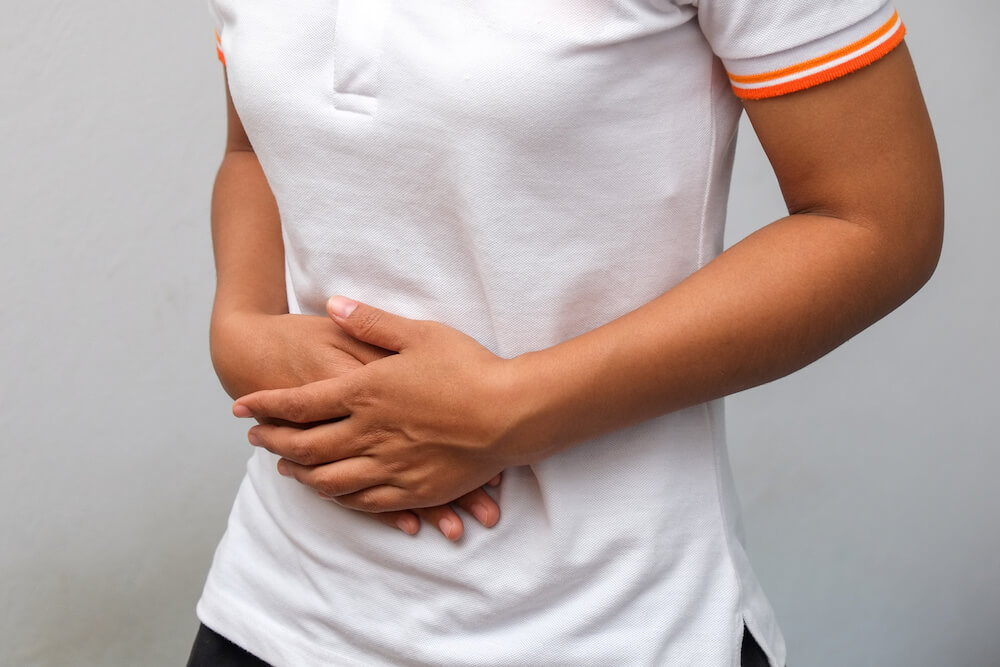Both abdominal as well as pelvic adhesions are painful and uncomfortable, and Doctors Miklos and Moore understand that.
Abdominal adhesions attach themselves to abdominal organs such as the intestines, bowel, colon, liver, gallbladder, peritoneum (lining of the abdominal wall), appendix, spleen, kidneys, or uterus. Pelvic adhesions can be found in the lowest portion of the abdomen and within the confines of the pelvic bones and pelvic organs such as the uterus, vagina, fallopian tubes, ovaries, rectum, bladder, and sigmoid colon. It has been estimated that 90% of patients undergoing major abdominal surgery and 55-100% of women undergoing pelvic surgery will develop adhesions.
Abdominal adhesions often show themselves in the form of pain, distention, bloating, and constipation. Pelvic adhesions, on the other hand, cause pain during sexual intercourse.
There are several treatment options for these types of adhesions. The medical term for adhesion removal is adhesiolysis. Doctors Miklos and Moore are experts in adhesion removal surgery, and perform only laparoscopic surgery for abdominal and pelvic adhesions. A number of approaches and measures have been adopted over the years in an attempt to prevent adhesions during laparoscopy (minimally invasive surgery), un-powdered gloves, extensive irritation and adhesion reducing agents such as anti-inflammatory agents, peritoneal instillates, and surgical barriers. Of these measures, some barrier methods have proven to be beneficial, but no one agent or barrier has ever been proven to completely stop adhesion formation in patients. To date, the most important aspect of preventing adhesions is the surgical technique and meticulous nature of the region.
Doctor Miklos and Doctor Moore always attempt to minimize trauma and bleeding to the patient at the time of adhesion removal by doing the following:
- Using laparoscopic surgery methods for abdominal adhesions and pelvic adhesions: Doctors Miklos and Moore use scissors with minimal electric energy.
- Minimizing electric energy: Many surgeons will burn every adhesion prior to cutting them, to prevent bleeding. However, burning adhesions creates thermal damage and the tissue begins to slough (i.e. ‘rot’) over the next few days. This creates sticky tissue, which in turn creates even more adhesions. Drs. Miklos & Moore use electric cautery (i.e. burning) energy only when needed. They estimate they use less than 10% on all adhesions. They cut adhesions first, and only if the bleeding persists will they use energy to cauterize or stop the bleeding.
- Gently handling tissue: Minimizing trauma to the area by handling tissue with the utmost care is crucial to minimizing adhesion formation.
- Minimizing blood loss: Blood loss comes from traumatized tissue. If a surgeon minimizes trauma to the tissue, then there will be less blood loss. Less blood loss means less adhesion formation.
- No powdered gloves: Some surgical gloves have a talc type powder on them. Doctors Miklos and Moore make sure their gloves are foreign-body free. Foreign bodies mean more adhesions.
- Anti-adhesive agents: Though no agent has ever been proven to definitely work against preventing adhesions, Doctors Miklos and Moore are not against using products such as Interceed, Spray Gel, Adept, or Arista. Doctors Miklos and Moore allow the patient to make the decision as to whether an anti-adhesive agent should be used.
With 45 years of combined laparoscopic experience and more than 8,000 surgical patients, Drs. Miklos and Moore understand the severity of pain that patients suffer from abdominal adhesions. Patients from all over the world that have had 5 to 10 previous surgeries, are treated successfully at Miklos and Moore Urogynecology. A patient from Winchester, VA who had more than 20 abdominal surgeries went home with zero complications after having surgery with Drs. Miklos and Moore. She is living a happy and pain free life.
Drs. Miklos & Moore have a bowel, bladder and ureter injury rate of less than 1% and a less than 1 in 500 chance of subjecting their patients to a laparotomy (i.e. large incision operation). It comes as no surprise that patients travel from around the world to have their surgeries performed in Atlanta, GA and Beverly Hills, CA by Dr. Miklos & Dr. Moore.
If you have pelvic or abdominal adhesions and are considering adhesiolysis as a treatment, contact Doctor Miklos and Doctor Moore today; being experts, they will be able to discuss options and what is best for you and your body.

